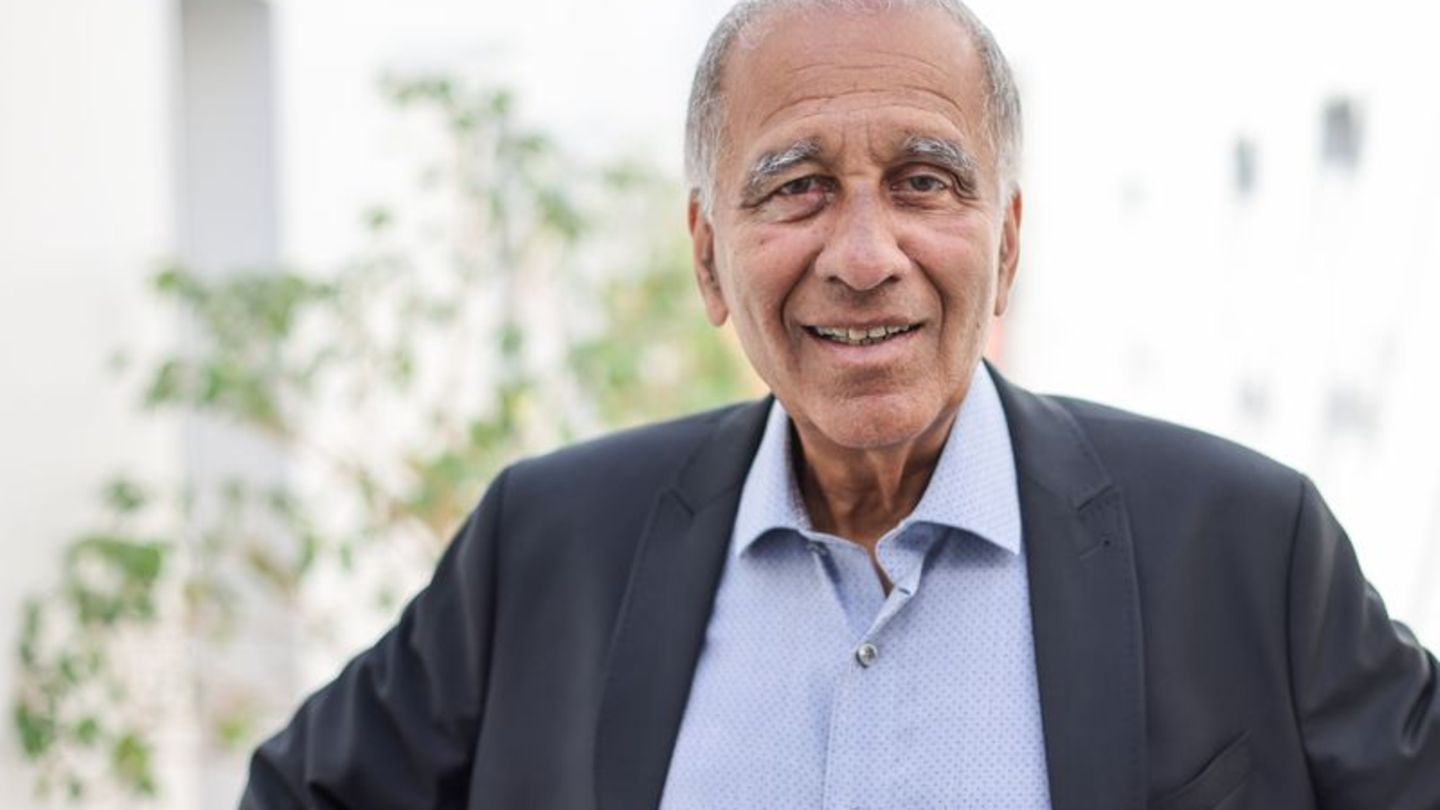He has been an authority in climate research for decades. Mojib Latif turns 70. The professor wants to continue working and relies on technical progress.
When it comes to explaining climate change, Mojib Latif is a sought-after man. He patiently talks about the causes and consequences of global warming in interviews. He has written more than a dozen books and countless articles and trained thousands of students. On September 29th, the charismatic scientist with the ability to make complex things simple will turn 70. He will continue to work and he wants to remain optimistic, says Latif during a conversation in his study in the Academy of Sciences in Hamburg, of which he is president.
It was not initially clear that the son of Pakistani parents would make research into climate change his life’s work. After graduating from high school in Hamburg, Mojib Latif studied business administration. “As is the case with many young people, you don’t know exactly what you should do after you graduate.” But he quickly realized that business administration wasn’t his thing and changed. It was supposed to be scientific and meteorology became it.
Path to climate research
He found out about climate change after studying at the Max Planck Institute for Meteorology (MPI) in Hamburg. “One day the director and later Nobel Prize winner Klaus Hasselmann offered me a doctoral thesis in his institute. And that’s how I got into climate research.” After years in Hamburg, the award-winning professor worked at the Geomar Helmholtz Center for Ocean Research Kiel and its predecessor institutes in Kiel since 2003. He is still a senior professor there today.
When the vast majority were not yet convinced of man-made climate change, Latif’s talent for speaking publicly about the difficult topic in a way that was understood was evident. “I always thought, and this was a big mistake, that knowledge leads to action,” he says looking back. That didn’t discourage him.
Even today, decades later, he patiently explains the difference between weather and climate and the influence that climate change has on weather events. The German Weather Service has just released its assessment of the summer of 2024, which was once again much too warm. Latif casually inserts a live interview for a radio station and patiently explains the context – as he has done hundreds of times before.
Science is slow to penetrate
“Climate science is difficult to penetrate because there is always the conflict between science and business.” This was already the case with the ozone hole problem, which was relatively easy to solve. It is said that without the economy nothing works, that the economy must flourish and the environment must take a back seat. “Conversely, one can of course argue that without an intact environment there will be no good economic development.”
What can also be seen: “Politics doesn’t like to make decisions. You wait and wait until you’re forced,” criticizes Latif. Neuroscience also offers an explanation for why many people repress the topic. “Everything that’s far away, no matter how bad it is, doesn’t really interest us. We’re interested in the here and now.” Therefore, information does not necessarily lead to action.
Like drivers in the fog
Science cannot predict in detail when which climate tipping points will be reached. “But that’s the best reason to do something,” says Latif. “We behave like a driver in the fog, driving at top speed and not knowing whether the traffic jam is about to end or not.” But it is already clear that heat waves will increase, sea levels will rise and the rise will accelerate.
The topic has really caught on with decision-makers in recent years. “This is a success that climate research can pin on its lapels.” However, implementation takes too long and old technology is stuck for too long. The German automotive industry, for example, is now feeling the pain of this. “We are being left behind,” says Latif. “This can cost us our prosperity.”
Make up for past failures
From Latif’s point of view, incentives are necessary to make up for the shortcomings of the past. Climate money would be an important step so that people have the feeling that they are getting something and not just being fleeced. Things have to be socially fair. That’s why the 49 euro ticket, for example, is so important. “It’s about participation.” We have to address the environmentally harmful subsidies. Latif cites company car privileges, aviation fuel and diesel as examples.
Lots of hostility
Latif says he has always received contradictions and criticism, often out of ignorance. “These insults and insults, this denial of scientific facts, I saw that very early on.” It is becoming more and more common and the willingness to use violence is increasing. “I don’t care, but I just ignore it.” For him, racism comes into play.
Bad news about the state of climate change
Latif has bad news about the state of climate change. Of the past 14 months, 13 have already exceeded the 1.5 degree target. The goal can therefore only be to stay below two degrees. This would theoretically be possible if the world became climate neutral by 2060 or 2070. Latif hopes that renewable energies will become so unrivaledly cheap that they will become widespread. “The game changer is technological development.” However, the professor is not thinking about technologies such as the capture and underground storage of carbon dioxide. Because: “That artificially prolongs the wrong thing.”
Birthday in peace
Latif doesn’t have much time aside from his scientific work. He likes to ride his bike, in Hamburg or on the Baltic Sea. But he couldn’t imagine playing golf all day. The Academy of Sciences in Hamburg, which covers the whole of Northern Germany, offers so many exciting topics. Latif wants to spend his 70th birthday in peace with his wife.
The former director of the Max Planck Institute for Meteorology, Hartmut Graßl, praised his colleague as an outstanding scientist. Latif and his colleagues are among the international leaders when it comes to predicting climate anomalies over several years. Graßl also sees Latif’s publicity as a particular strength. “He can speak into microphones or cameras in a way that is understandable and ready for printing.” He admires that, says Graßl.
dpa
#Topics


